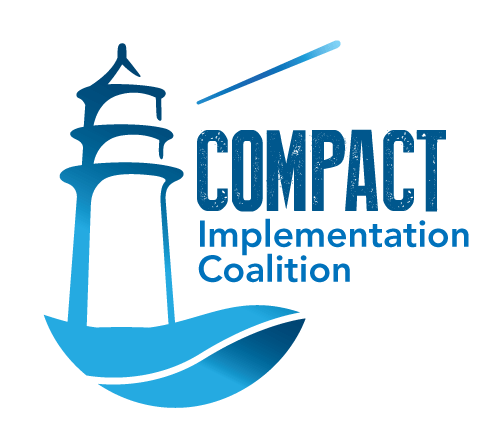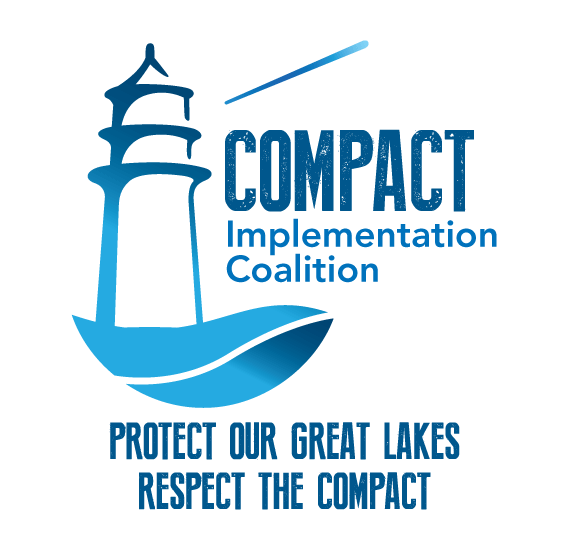
WHAT IS The Great Lakes Compact?
The Great Lakes are a national treasure. As the world’s largest freshwater ecosystem, it is the source of water for 40 million people around the Great Lakes basin. We must protect this natural resource for future generations.
In 2008, the Great Lakes Compact was enacted as a federal law protecting the Great Lakes as a vital economic and cultural resource. The Compact Implementation Coalition was formed to protect and safeguard this important law. Together as a coalition, we review all Wisconsin water diversion requests to ensure they comply with the federal legislation protecting our waters.
We are fighting to keep a STRONG compact that protects our waters for future generations.
YOUR VOICE MATTERS.
Without the voice and support of people like you, our efforts to protect Wisconsin's most precious freshwater resource, would not be possible.
It's through the everyday activism of thousands of Wisconsinites amplifying our work that we stay motivated and determined to ensure a STRONG compact remains in effect. Such as writing letters, making phone calls, signing petitions and sharing on social media lets our government agencies and elected officials know that we care about our Great Lakes and are holding them accountable for actions and policies that effect our waterways.
WHAT IS WATER DIVERSION?
A water diversion is any transfer of water across watershed boundaries through a man-made pipeline or canal. Diversions may transfer water in or out of the Great Lakes basin, or between the watersheds of different lakes or rivers within the basin
LATEST NEWS
The Great Lakes hold quadrillions of gallons of water. Is allowing one more company to take water from them such a big deal?
Yes, say groups worried about the slippery slope of Great Lakes' diversions.
A controversial plan to divert 7 million gallons of water a day from Lake Michigan to the proposed site of a factory in Wisconsin, run by Foxconn, an international manufacturer of electronics, was upheld by an administrative law judge earlier last month.
Madison, WI—In a ruling issued Friday, an administrative law judge upheld the Wisconsin Department of Natural Resource’s approval of the City of Racine’s plan to divert millions of gallons of water per day from Lake Michigan to serve a manufacturing complex proposed by Foxconn Technology Group.
A New Year means a time of renewed commitments to our communities and to our waters. The Great Lakes — Superior, Huron, Michigan, Ontario and Erie — make up the largest body of freshwater on the PLANET. More than 30 million people, across the United States and Canada live within the Great Lakes Basin, relying on this precious shared resource for drinking water as well as recreational and economic opportunities.
“Today, the Anishinabek Nation leadership is seeking to ensure that the Great Lakes and the St. Lawrence River are subject to stronger rules and improved accommodation and recognition of Anishinabek inherent rights, Aboriginal and treaty rights where there is an interest within the scope of the Compact Council and Regional Body on water withdrawal. Water is the Lifeblood of Mother Earth – we must do what we can to protect it,” says Anishinabek Nation Grand Council Chief Glen Hare.
Our coalition supports all of the detailed concerns and suggested fixes to improve the published draft documents that are outlined in the comments submitted by Alliance for the Great Lakes (AGL), National Wildlife Federation (NWF) and the Canadian Environmental Law Association (CELA). We summarize those concerns below and otherwise adopt the detailed substance of the referenced comments as our own. We also have included here a couple of additional comments our member organizations have on the proposed package
MADISON - This week, the legal challenge to the City of Racine’s plan to divert Great Lakes water to the Foxconn industrial complex advanced, with notice of a pre-hearing conference date and the addition of prominent petitioners.
In the Spring, Midwest Environmental Advocates, on behalf of four petitioners (League of Women Voters of Wisconsin, Milwaukee Riverkeeper, Minnesota Center for Environmental Advocacy, and River Alliance of Wisconsin), filed a legal challenge with the Wisconsin Department of Natural Resources (DNR). The petitioners contend that DNR’s approval of Racine’s request for a Great Lakes water diversion for the Foxconn development violates the Great Lakes Compact, an interstate agreement enacted to protect this economic and cultural resource.
MADISON – On Friday afternoon, Midwest Environmental Advocates and several groups challenging the proposed diversion of Great Lakes water for the Foxconn plant filed requests to stay the diversion that they contend violates the terms of the Great Lakes Compact. The filings do not seek to prevent Foxconn from moving forward with general construction. Rather, the filings ask the court to put a hold on the Wisconsin Department of Natural Resources’ diversion approval during the ongoing legal challenge. Additionally, the groups have requested that the City of Racine hold off on beginning any construction work on new water infrastructure related to the proposed diversion of water from Lake Michigan.
Integrity of the Great Lakes Compact at Risk
MADISON, WI - On Friday afternoon Midwest Environmental Advocates (MEA) filed a legal action under the Great Lakes Compact to challenge the Wisconsin Department of Natural Resources’ (DNR) April 25, 2018 approval of the City of Racine’s request to divert 7 million gallons per day (MGD) of Great Lakes water outside the Great Lakes Basin.
“This legal challenge is essential, as Wisconsin’s approval of the Lake Michigan water diversion requested by Racine tests the integrity of the Great Lakes Compact by ignoring a key requirement of the historic agreement entered into by the eight Great Lakes states and enacted into federal law,” states Midwest Environmental Advocates attorney, Jodi Habush Sinykin. “This mistake must be corrected to defend the Great Lakes Compact and to protect our magnificent Great Lakes in the near and distant future.”








